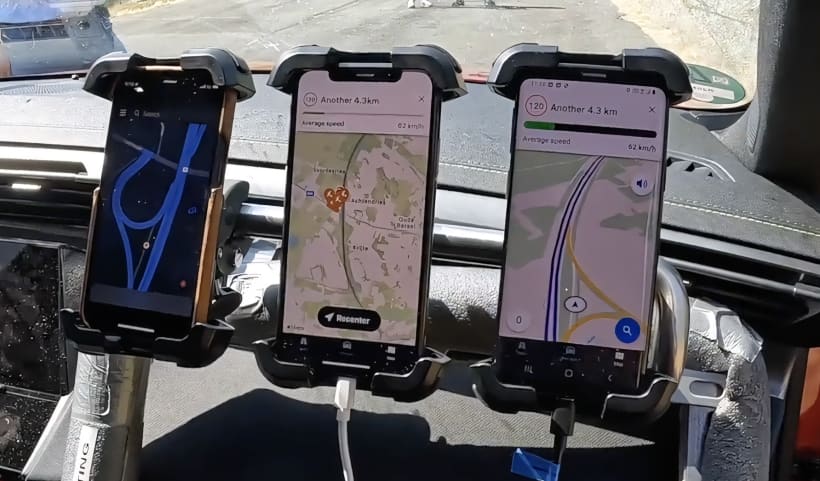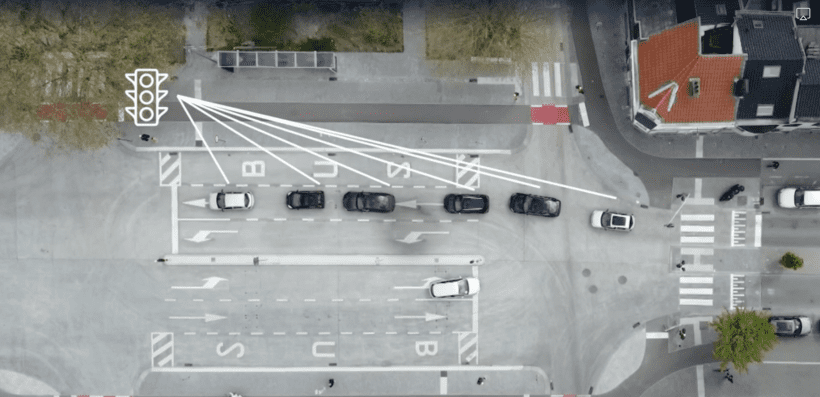Mobilidata
In Flanders, we strive to work on tomorrow’s mobility today. That includes the Mobilidata programme. With this programme, various levels of government, companies and researchers are jointly developing innovative, technological traffic solutions for road users, such as better route advice, tailored traffic notifications and intelligent traffic lights. New connected mobility and know-how do not stop at our national borders however, so international collaboration is needed to exchange knowledge and set up joint projects to implement it.

Objectives
In densely populated Flanders, urbanisation is constantly on the rise. However, our traffic
infrastructure is not prepared for this. As a result, we all end up stuck in traffic more and
more often. We aim to make our traffic safer and more efficient again, through knowledge
and technology for generating, managing and sharing smart data.
- Stap 1
We can make traffic safer, smoother, more sustainable and comfortable by smartly organising the public data, businesses and road users and sharing real-time, relevant information with each other.
- Stap 2
This will lead to increased road safety, time savings, stress reduction, efficient communication and better air quality.
- Stap 3
In turn, strong mobility also ensures economic and social stability and stimulates growth.
Data as the basis for traffic solutions

Within the Mobilidata programme, 31 traffic solutions were developed in 5 categories: intelligent traffic lights, risk and hazard notifications, navigation and parking management, traffic rule notifications and policy support. Data sharing and collection are the basis for communication between the smart road infrastructure and the road user. These solutions will be available to Flemish road users from 2023 and 2024 on. Beyond the rollout of those identified traffic solutions, Mobilidata also focuses on further research into new traffic solutions and their market uptake, that have distinct societal value, such as accommodating cycling groups, supporting vulnerable (groups of) road users such as the blind and visually impaired and encouraging modal shift among commuters.
The road to autonomous mobility
The commercial roll-out of autonomous vehicles in Belgium is an exciting yet complex process.
To ensure Belgium becomes one of the frontrunners in autonomous transport, the Belgian Interministerial Conference for Mobility (joining the ministers of federal and regional level) commissioned a roadmap. The Department of Mobility and Public Works (MOW) in cooperation with the FPS Mobility and Transport (FPS M&T) (in Dutch)(opens in new window) for this purpose.
Specifically, the roadmap provides a regulatory framework at the federal and regional levels that allows autonomous vehicles on public roads.
Furthermore he Flemish Minister for Mobility and Public Works set up the Flemish Task Force on Autonomous Transport in 2023, bringing together and applying all the necessary expertise from industry, the academic sector, research institutions, interest groups, governments, etc. in Flanders, guide the development of autonomous transport in Flanders and facilitate new pilot projects. The focus for the 2023-2028 period is both on passenger mobility and goods transport.
Collaborate on tomorrow’s mobility

Before we can safely implement tomorrow’s mobility, we need to provide a strong physical and digital base. In addition, international coordination and cooperation are essential, as future (eventually autonomous) mobility extends beyond our national borders. That is why we are happy to share best practices from the Mobilidata programme as well as other CCAM related developments, but also look for interesting cross-border projects.